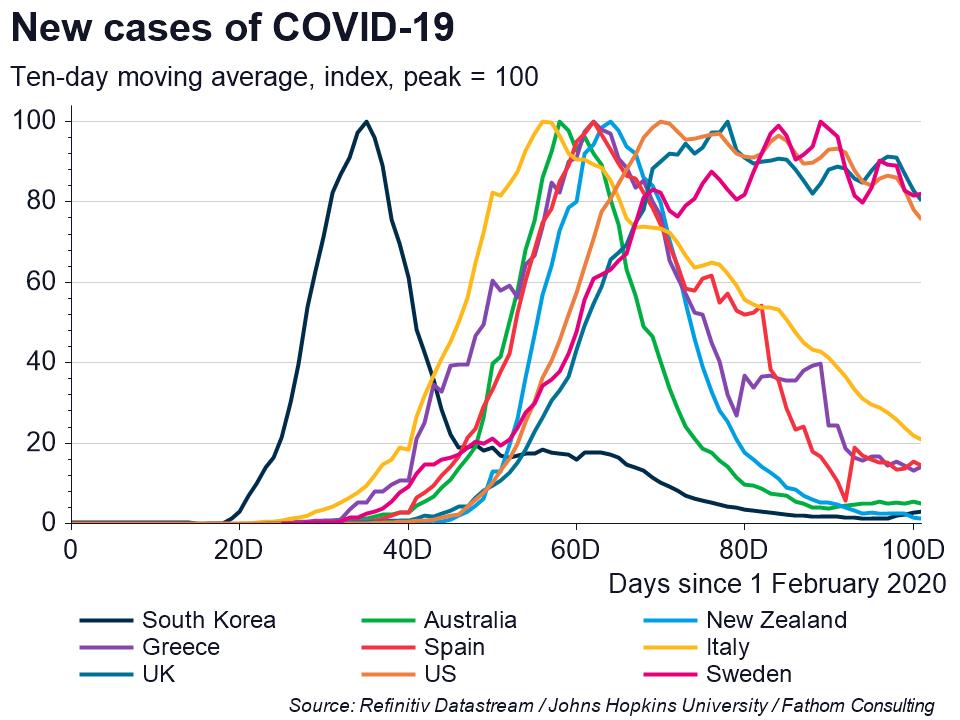Environmentalists argue that COVID-19 is showing us the need for collective endeavour on a global level and reinforces the need to act urgently on climate change. Some in the business community and beyond disagree and are saying: there should be no higher priority than to repair a ravaged economy, postponing stricter environmental regulations if necessary. Both the public-health crisis and the climate crisis highlight the limits of humanity’s power over nature. The battle lines have been drawn. The results will define the post-pandemic world.
With dozens more countries enforcing lockdowns in response to the COVID-19 pandemic, a wide range of indicators show how transport use, electricity demand and industrial activity have reduced significantly. Yet there have been few attempts, thus far, to quantify the consequences for global CO2 emissions. The pandemic in a sense replicates climate change at warp speed. This may explain why public opinion overwhelmingly considers global warming as serious a threat as COVID-19 and wants governments to emphasize climate action in the recovery.

The current pandemic has also provided a crash course on the collective implications of individual behaviour. Each of us has been forced to recognize that our responsibilities vis-à-vis the community are profound and cannot be fulfilled merely by paying taxes and making a few donations. This “pay and forget” attitude is clearly inappropriate in a public-health crisis and in a climate crisis. Once the immediate pandemic crisis repair is complete, the opportunity to build on heightened collective awareness to transform our economies and change our way of life should not be missed.
The economic impact is well documented and capital remains idle. Wealth creation is being reversed at an alarming rate. There are different issues being faced, by both big and small companies and by industry.
How many people will have no job to return to? While no-one can put an exact number on it, there is something quite clear in front of us. The lockdown has accelerated digital transformation trends. To quote the CEO of IBM, Ginn Rometty:” business will realise there is a fair amount of middle management or real estate that they don’t need’. I couldn’t get people in the right place, so I am really going to accelerate automation’. I am going to modernise my application. My IT needs investment. This could put a pressure on a form of corporate restructuring. An opportunity to move to the future faster. On the one hand great benefit, on the other hand great challenge.”
Business meetings and conference –will we still fly or take trains or meet online? Many companies have cancelled major conferences. IBM for example had a 30,000 strong conference planned in San Francisco and moved it online and could increase participation to 100,000 employees. That mode of thinking will carry on for the rest of the year, and possibly much longer. Work will be re-imagined.
When a company has done the imagining, and has made it work, saved money and time, why would they go back? It’s likely there will be a hybrid – a new normal. It won’t be binary – all work from home, or all work from the office, rather employees will do certain work remotely and come into the office to meet with each other a few times a week.
Either way it will have a profound impact on economies that are based on consumption, flying, travel, eating out, conferences – have we learnt that we don’t need the same level of consumption? That seems one of the profound questions to address.


